Plant Out Thyme Into A Warm Location And Well-Drained Soil Say Horticulturists
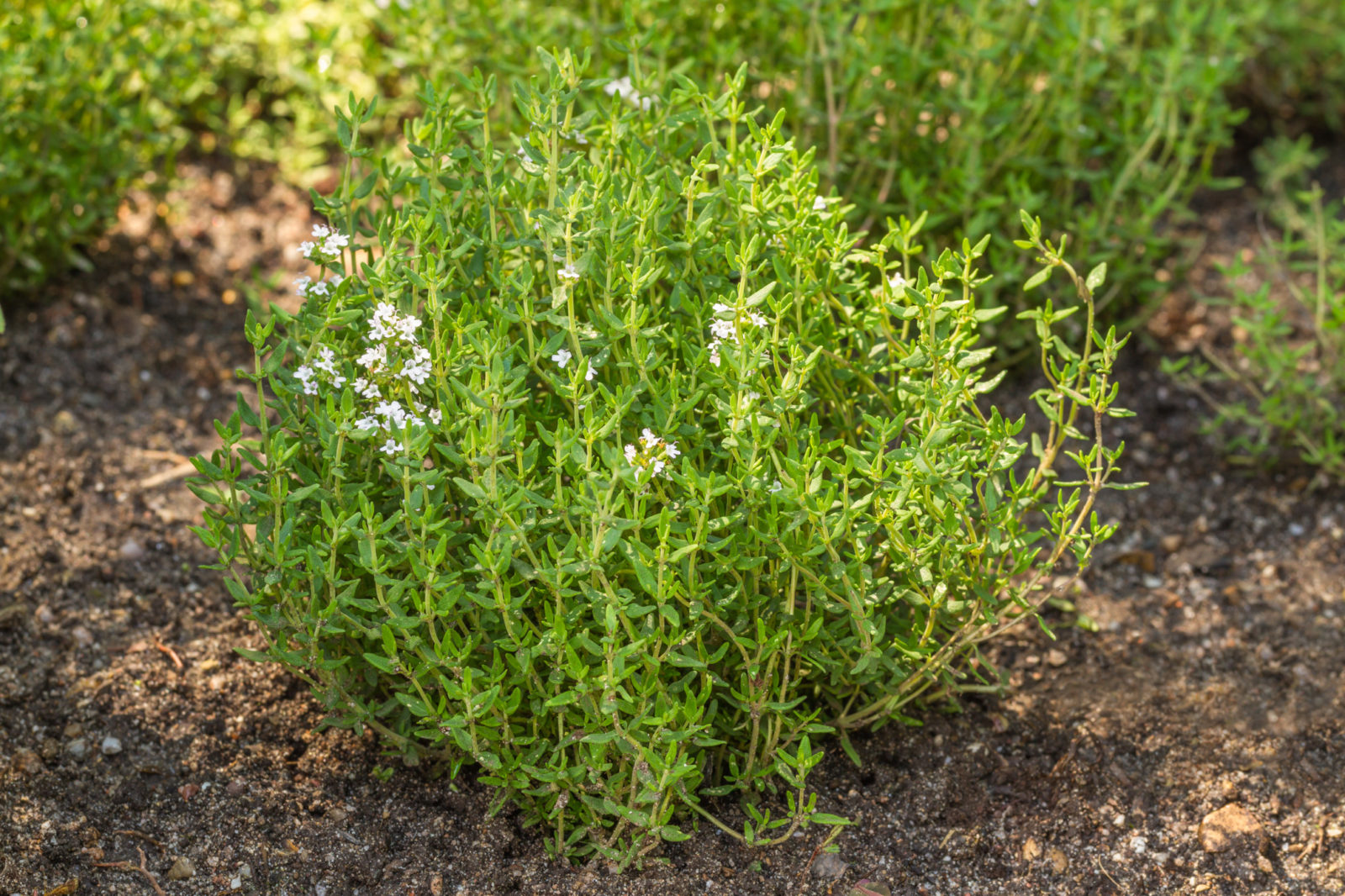

Elizabeth is a Permaculture Garden Designer, Sustainability Consultant and Professional Writer, working as an advocate for positive change. She graduated from the University of St. Andrews with an MA in English and Philosophy and obtained a Diploma in Applied Permaculture Design from the Permaculture Association.
Reviewed By COLIN SKELLY

Colin is a Horticulturist and Horticultural Consultant with experience in a range of practical and managerial roles across heritage, commercial and public horticulture. He holds the Royal Horticultural Society’s Master of Horticulture award and has a particular interest in horticultural ecology and naturalistic planting for habitat and climate resilience.
Contributions From EMILY CUPIT

Emily is a Gardening Writer, Photographer and Videographer from Derbyshire, UK. She is the Founder of Emily's Green Diary - a community of more than 75,000 people who share in her gardening journey.
IN THIS GUIDE
THYME GUIDES
Harvesting
Planting Out
Thyme is a very popular culinary herb that can either be grown from seed or purchased as pot-grown plants.
Whether you grow your own from seed or buy a plant from a garden centre, planting it out in permanent containers or in the ground is a relatively easy and straightforward process.
We explain the process for planting out thyme in depth down below.
When To Plant Thyme
You can purchase and repot thyme to grow inside at any time of the year.
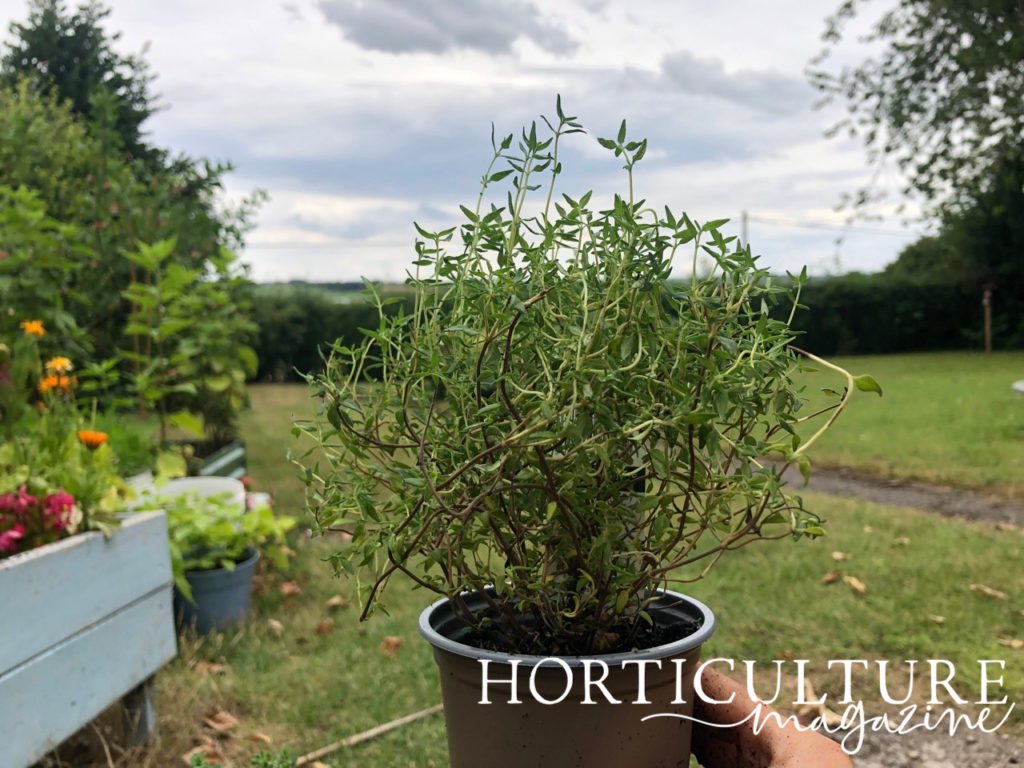
However, if you would like to grow thyme outside in your garden, then the best time to plant it is between May and August, ideally in the spring, before the weather gets too hot.
Where To Plant Thyme
Thyme requires a sunny and warm location and well-drained and alkaline to neutral soil.
It is fairly drought-tolerant and cannot tolerate waterlogged conditions.
This Mediterranean herb can be a great choice for container gardens.
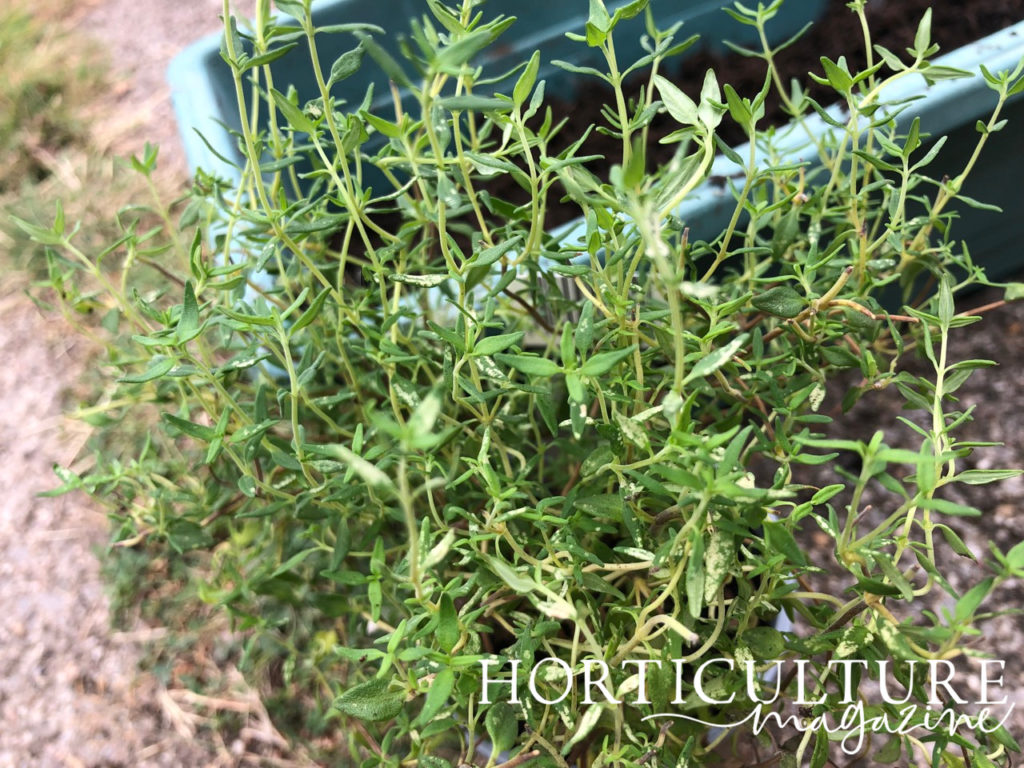
Thyme also does well in a dedicated herb garden, perhaps towards the top of the sunny side of a herb spiral.
Thyme can also be beneficial as a companion plant on the dry and sunny fringes of a fruit tree guild or other perennial planting scheme.
It can also be beneficial when planted near or around the edges of an annual vegetable garden, where it can attract a range of beneficial insects, repel pests and create good ground cover.
How To Plant Out
Before you plant out thyme or place it into new containers, you will need to prepare the area.
Make sure that the area for outdoor planting is suitable to meet the growing needs of these plants.
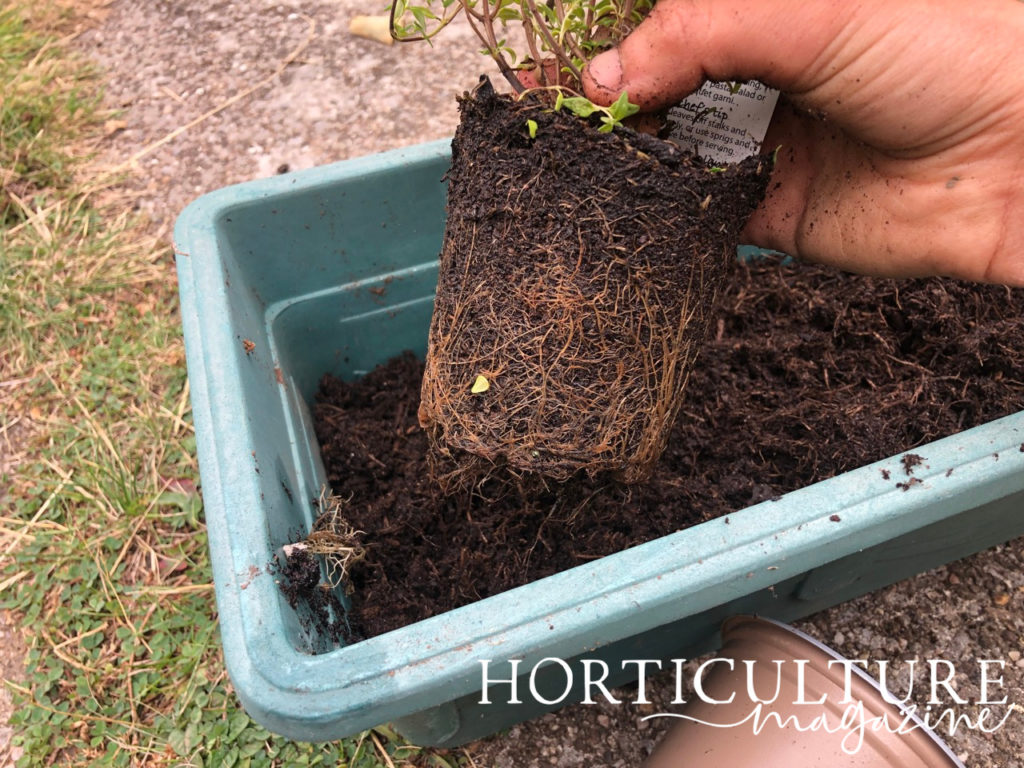
If growing in a container, it should allow for very free drainage and be just a little larger than the current one.
It should be filled with a soil-based, peat-free medium, with some grit added for drainage.
“Thyme is not adapted to sitting in wet soil, so consider mixing in about 1/3 grit into your potting mix,” recommends Colin Skelly, a Horticulturist and Garden Consultant.
“This will ensure sharp drainage so that water moves through the compost and allows plenty of air into the compost.”
Dig a hole deep and wide enough to accommodate the root system of your thyme plant or place a little of your growing medium at the base of the container.
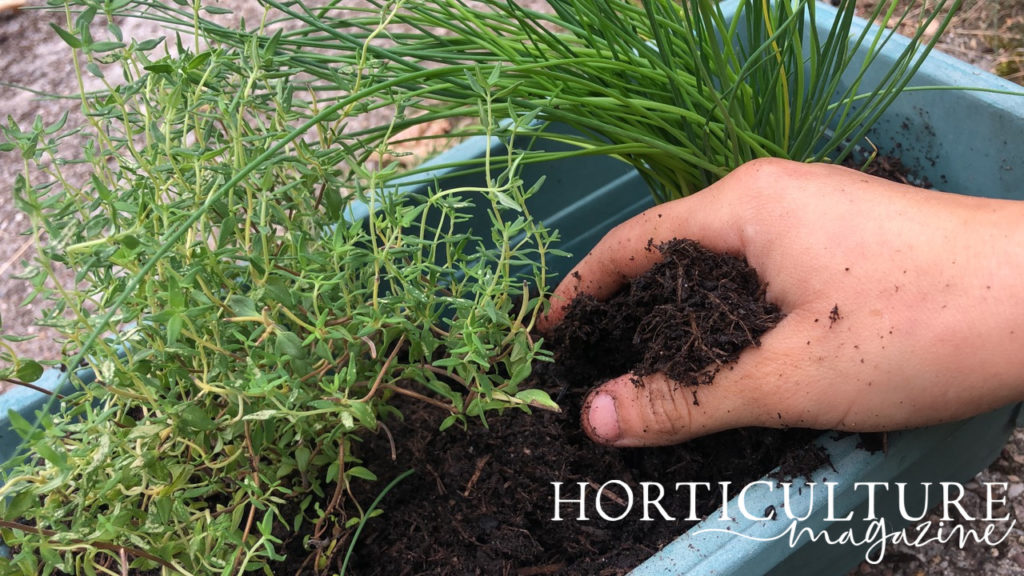
Remove the thyme from its current pot and place it into the hole or the new container, then gently firm the growing medium around the sides of the roots.
Water in well, but make sure excess water can drain away freely.
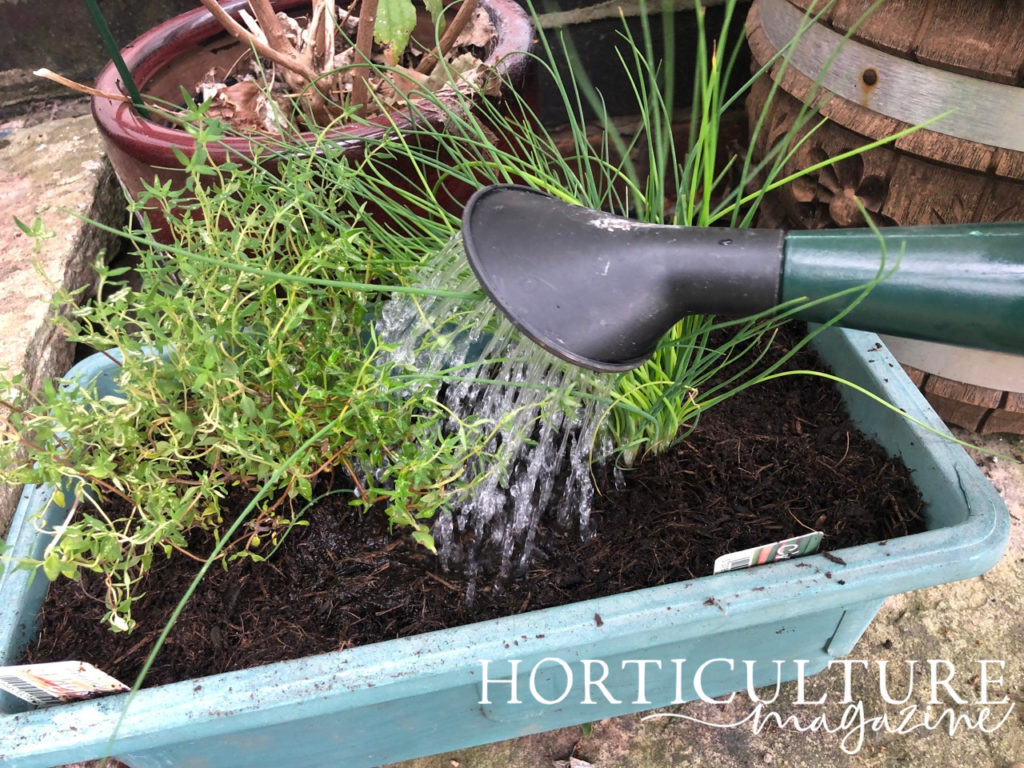
Consider laying grit or gravel around the base of the plant to protect the foliage from wet soil.
